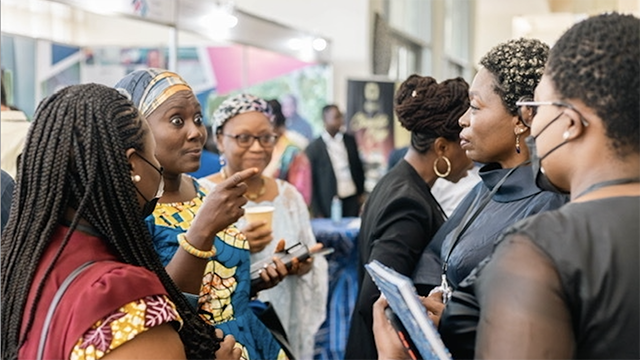Secretary Madeleine Albright and Minister Mohamed Benaïssa recently published an op-ed in Jeune Afrique with recommendations for the African Union as it prepares for its 32nd Summit. The article was an outcome of the December Aspen Ministers Forum in Morocco.
Click here to read the published article in Jeune Afrique (French), or read the English translation below.
A New Age of African Cooperation
Secretary Madeleine Albright and Minister Mohamed Benaïssa
“The wind of change blowing through Africa is no ordinary wind,” wrote Kwame Nkrumah in 1963, “it is a raging hurricane against which the old order cannot stand.” As Nkrumah penned these words, France and West Germany ended centuries of rivalry with the Élysée Treaty, the Partial Nuclear Test Ban Treaty was signed in Moscow, and independence movements swept across the African continent. A new global order emerged out of the ashes of the Second World War. In the half century that followed, Western and Transatlantic alliances thrived and dominated the world. But we are now living in a different age where we see these once-unassailable alliances being undermined and questioned as the dark banners of extreme nationalism have been unfurled across the global stage.
The disease of isolationism spreading throughout much of the world presents the African Union, as it now prepares for its 32nd Summit, the opportunity to capitalize on the continent’s growing economic power and become a beacon of institutional stability. In this moment of shifting international leadership, action-oriented multilateral organizations can fill the space. To do so, however, the African Union must first confront new and continued challenges: climate change and dwindling natural resources, including water scarcity; a record number of migrants and refugees; and a regional economic infrastructure which needs to grow in order to accommodate a demographic youth bulge.
At the December Aspen Ministers Forum in Morocco, we gathered former foreign ministers from around the world and invited experts from across Africa to discuss the continent’s successes and enormous potential for progress and development. The tone of the meeting was fundamentally optimistic, for we all saw boundless opportunity to lay solid groundwork for future growth. However, none of the issues confronting the African continent can be solved alone. Partnerships, not isolation, are the only way to usher in a new era.
Ambitious cooperation can help solve food security. A cohesive and shared restructuring of the import/export economy in Africa, coupled with investment in local and rural farmers through cooperatives, have the potential to feed not only the continent but those beyond. By leveraging intra-African trade networks, resource deficiencies exacerbated by climate change can be addressed in real time, bringing food to those who need it most. And by growing partnerships outside the continent, member states can export surplus food stocks.
Likewise, cooperation is essential to address the surge of refugees, internally displaced peoples, and migrants. At the Ministers Forum, we agreed that the international funding system currently in place to help refugees is flawed and must be revised. It relies on voluntary donations and consistently fails to generate adequate resources to shelter, educate, and provide basic resources to refugees. The international community, including the African Union, should partner to develop new financing mechanisms while implementing a system of responsibility sharing among nations with greater resources to aid those who, often as a result of proximity, host the majority of refugees.
Finally, strong economic growth is essential to create jobs for the burgeoning next generation. As an educated workforce also grows an economy; the African Union can work to expand vocational training by partnering to scale educational infrastructure across the continent. Finally, to create an alternate, sustainable source of investments in African development, we must reinvigorate Public Private Partnerships, successful examples of which include the Mozambique Malaria Performance Bond and the Power Africa Project.
Morocco, where we met in December, serves as an exemplar for the holistic and committed partnerships necessary for Africa to overcome its food, refugee, and economic challenges. The newly established King Mohammed VI Polytechnic University, for instance, offers a promising model for how domestic and regional cooperation can create successful educational institutions on the continent.
Our experience as foreign ministers has proven to us that cooperation builds nations while isolationism tears them apart. That is why we believe that through strong alliances, both within the continent and with new partners beyond it, the AU has the opportunity to lead and strengthen Africa as it claims an expanded role on the world stage. Léopold Senghor, the first president of Senegal, remarked that “civilization in the 20th century is universal. No people can get along without others.” To paraphrase Senghor, civilization in the 21st century is global. The mantle of cooperation must now adorn Africa. A united Africa will reshape the destiny of the world.
Madeleine K. Albright was the 64th Secretary of State of the United States. She is the Chair of the Albright Stonebridge Group and the Founding Chair of the Aspen Ministers Forum.
Mohamed Benaissa is the former Minister of Foreign Affairs and Cooperation of the Kingdom of Morocco (1999-2007) and a member of the Aspen Ministers Forum.

